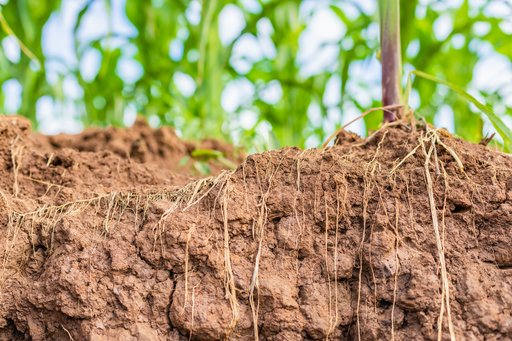Viruses play a crucial role in healthy soils
Viruses infect everything from bacteria to plants and animals, and therefore play a huge role in the Earth's biodiversity and its ability to recycle nutrients. However, this fact has not yet been properly highlighted, say researchers from Aarhus University, who have led an international research article recently published in the renowned journal Nature Microbiology.
Soils consist of a mix of larger and smaller particles combined with tunnels and cavities. In this complex structure, viruses operate and can infect all organisms. The constant changes in soil structure also mean that the effect of viruses varies continuously.
The top 30 cm of our soil contains 2.3 x 1025 viruses. That's an astronomical number. A virus is between 30 and 80 nm in size. If you take an average length and put all the viruses in the top 30 cm one after the other in one long row, it corresponds to approximately 16 million times back and forth from the earth to the moon.
And although viruses are small their influence can be colossal. The impact of viruses on life in soils urgently needs to be unraveled, emphasize the researchers behind the large international collaboration.
"For example, we know that fungi are incredibly important for breaking down complex organic structures, which we find in plants and animals, and they are crucial for the entire biological cycle in the ecosystem. But we know remarkably little about what the interaction between viruses and fungi means," says senior researcher Christian Lønborg, Institute for Ecoscience, Aarhus University.
Christian Lønborg points out that soil biodiversity and organic carbon content have been declining in soils over the past few decades due to intensive agricultural practices worldwide.
Therefore, it is crucial to clarify the role viruses play in the complex interaction between all organisms in the soil.
"If we can better understand the role and function of viruses in soils, we can hopefully provide recommendations that ensure higher biodiversity. We will also be better able to predict how to enhance the soil's ability to retain carbon and ensure sustainable solutions to diseases in cultivated crops," says Christian Lønborg.
The international research team highlights several areas of focus that should receive greater attention in future research. With their work, they hope to stimulate more studies on the influence of viruses in soil.
"Soil is absolutely crucial for a healthy environment and for human well-being and survival. In this light, it's surprising how little we know about the importance of viruses in soils," says Christian Lønborg.
For further information contact:
Christian Lønborg, assistant professor, Institut for Ecoscience, Aarhus Universitet. Mail: c.lonborg@ecos.au.dk; tlf.: 8715 8467
Read the scientific paper here: https://www.nature.com/articles/s41564-024-01767-x


